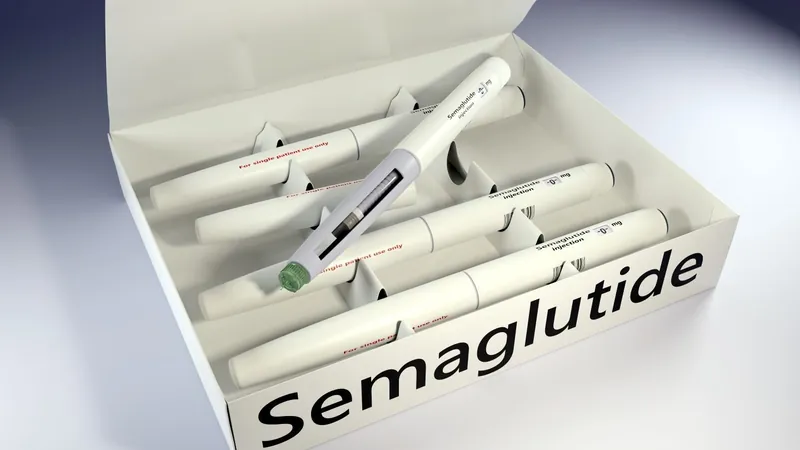
Major Breakthrough at AHA 2024: Semaglutide Shows Promising Results for Diabetic Kidney Disease
2024-11-18
Author: Sarah
Introduction
At the highly anticipated American Heart Association (AHA) 2024 conference, a significant spotlight was placed on the groundbreaking advancements in kidney health relating to diabetic patients. Dr. Katherine Tuttle's presentation on "GLP-1 Receptor Agonists and Beyond" unveiled game-changing insights into the renal benefits of glucagon-like peptide-1 (GLP-1) receptor agonists, specifically focusing on Novo Nordisk's Ozempic (semaglutide).
Key Findings from the FLOW Trial
One of the standout moments of the conference was the presentation of results from the FLOW trial, which decisively demonstrated that semaglutide not only prevents worsening kidney conditions but also significantly lowers the risk of major cardiovascular events and mortality in individuals grappling with chronic kidney disease (CKD) and type 2 diabetes (T2D). Tuttle emphasized the importance of incorporating semaglutide as one of the four essential components of treatment alongside a renin-angiotensin system inhibitor, a sodium-glucose cotransporter-2 (SGLT-2) inhibitor, and a non-steroidal mineralocorticoid receptor antagonist.
Challenges in CKD Treatment
Despite the promising data, Tuttle pointed out major hurdles to effective treatment, such as widespread low awareness of CKD, insufficient detection rates, and challenges in accessing appropriate care—a situation that could potentially worsen with the projected increase in CKD cases. According to GlobalData’s report, "Chronic Kidney Disease: Epidemiology Forecast to 2033," the prevalence of CKD is anticipated to rise alarmingly from over 110 million cases in 2023 to approximately 121 million in a decade across major markets, including the US, France, Germany, Italy, Spain, the UK, and Japan.
Exciting Developments
In an exciting development, new results from the FLOW trial confirmed that a dose of semaglutide 1.0mg could reduce kidney disease progression risk and lower the chances of kidney-related and cardiovascular deaths by 24%. Leading experts consulted by GlobalData are optimistic that semaglutide could expand its therapeutic potential to include non-diabetic CKD patients, particularly those facing kidney issues associated with obesity rather than diabetes.
About the FLOW Trial
The FLOW trial itself was a comprehensive Phase III, randomized, double-blind, placebo-controlled study involving 3,533 participants with T2D and CKD. Its rigorous design ensured that the safety and efficacy profiles reported were reliable and consistent with prior semaglutide research.
Conclusion
As the medical community continues to unravel the complexities of CKD and explore innovative treatment avenues, semaglutide's emergence as a multifaceted therapy offers hope not just for diabetic patients but perhaps for a broader audience suffering from kidney ailments. This could signify a new era in how we approach kidney health, emphasizing the critical intersection of diabetes management and renal care. Stay tuned, as research evolves and the potential for expanded applications of GLP-1 therapies unfolds!



 Brasil (PT)
Brasil (PT)
 Canada (EN)
Canada (EN)
 Chile (ES)
Chile (ES)
 España (ES)
España (ES)
 France (FR)
France (FR)
 Hong Kong (EN)
Hong Kong (EN)
 Italia (IT)
Italia (IT)
 日本 (JA)
日本 (JA)
 Magyarország (HU)
Magyarország (HU)
 Norge (NO)
Norge (NO)
 Polska (PL)
Polska (PL)
 Schweiz (DE)
Schweiz (DE)
 Singapore (EN)
Singapore (EN)
 Sverige (SV)
Sverige (SV)
 Suomi (FI)
Suomi (FI)
 Türkiye (TR)
Türkiye (TR)